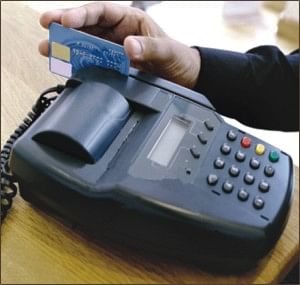Consumer credit ratings, long overdue

In the world of online shopping, anyone with access to the internet are welcome to browse, but one needs a credit card to actually buy anything.
Online shopping is growing rapidly in most developing and developed countries. It has revolutionised shopping as a consumer can compare products from a variety of vendors, without even having to leave his/her home. Products sold online are usually cheaper and when you consider savings in terms of transport-related costs and time, it is easy to see why online shopping is so popular, especially during holiday seasons.
For the seller, the main benefit is the huge reduction in costs and the ability to reach a wider customer base. In addition, setting up an online business is quick and easy compared to a real shop. Unfortunately, consumers in Bangladesh are yet to enjoy the benefits of web shopping due to restrictions on internet payment by the central bank. Yet even if the restrictions were to be withdrawn, net business is not likely to zoom off the ground for reasons beyond the bar on net transactions by the Bangladesh Bank.
The basis of online shopping is the ability of the merchant to secure payment electronically, or e-payment. That is, payment by credit card, verified online for authenticity, and routed through a gateway to the recipient. Just having access to the internet is like “window shopping” in the real world when the desire and willingness to purchase are there, but not the ability or means to pay for it. In the world of internet shopping, anyone with access to the internet are welcome to browse, but you need a credit card to actually buy anything.
Bangladesh has a growing number of internet users, but only a few of them have access to credit, and even fewer have credit cards. This is due to a low level of penetration of credit cards. Although the number of credit cards issued has increased over the years, it has not improved this penetration level significantly as a large percentage of the new cards were issued to existing cardholders.
The sequential growth in the number of credit cards issued to new customers has been negligible due to the absence of "consumer credit reports" in Bangladesh. Financial institutions are reluctant to issue credit cards to new customers without any information that would enable them to ascertain the credit worthiness of the applicant.
The business of consumer credit is massive, and in a country of 150 million people, it holds tremendous potential for the financial services and the information technology sectors. A consumer credit reporting agency or a credit bureau provides a credit report (called a consumer credit report or consumer credit score) on individuals that have some level of financial transactions within the formal system.
The main purpose of a credit report is to give a lender access to information regarding an applicants payment history and/or credit worthiness. It is something very similar to the CIB report by Bangladesh Bank, but expands the recordkeeping of transactions beyond financial institutions and includes most monetary transactions of a consumer including utility payments, cell phone payments, store credit card payments, etc. It could also include personal information like recent addresses and length of stay, past employment and earnings, etc.. These reports are continuously updated, and sometimes quantified using risk/credit analysis models, to give financial institutions and lenders a benchmark for assessing the credit risk of an applicant.
In advanced economies, consumer credit reports are available online, allowing a lender or a merchant to make an instant approval of credit to close a sale to a customer on the spot. The ability to access credit instantly has significant effect (positive) on consumer spending habit. As a result, growth in consumer credit works as a catalyst to economic growth. An increase in consumer credit has a “multiplier” effect on GDP growth since it positively influences almost every sector of the economy.
It is essential for an economy to have at least one, if not a few, fully operational and reliable consumer credit reporting agency to stimulate economic growth through private spending. It is not uncommon to find several credit reporting agencies competing within a single economy. Unfortunately, there is a not a single credit reporting agency to cover the massive and growing credit-worthy middle-class citizens in this country. There is a corporate credit rating agency (CRISL) that provides credit information on selective companies. The companies that are covered by CRISL are definitely credit worthy to a certain extent and most, if not all, have publicly available financial information given in their listing with the stock exchanges.
The time to establish a private/semi-private consumer credit reporting agency has long gone and we will miss the e-commerce boat completely if we wait even longer. It will be a gigantic task to cover a significant portion of the eligible consumers from the 150 million citizens, but once done, the economy will continue to reap the rewards far into the future!

 For all latest news, follow The Daily Star's Google News channel.
For all latest news, follow The Daily Star's Google News channel. 



Comments